‘More harm than good’: Survey shows Australians want social media age restrictions tightened
No country in the world has successfully mandated age restrictions for social media, but a new survey shows Australians still want the age limit raised.
As the federal government investigates tightening the rules on social media, surveys continue to show Australians want raised age restrictions and a broader crackdown.
Survey results from market research firm Ideally suggest more than half of Australians think social media is doing more harm than good.
Two-thirds of survey respondents think TikTok poses the biggest risk to kids, but 18 to 34 year olds think TikTok and Instagram are in lock-step.
A far-reaching federal parliament committee inquiry into social media this year has been trying to decipher a way any government could regulate social media use.
The tech behemoths who own the major platforms say kids and teens will just use another app if regulations are tightened. Social workers also say a “superficial” 14 or 16-year-old age limit would give parents a false sense of security.
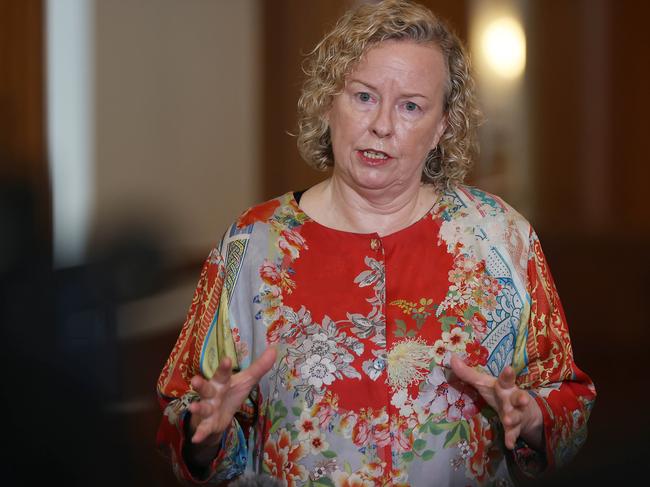
Snapchat, X, Instagram, Facebook and TikTok on paper require users to be at least 13 to sign up. Thirteen was picked as a benchmark in the US so the data of children could not be harvested.
But unlike providing a passport or a driver’s licence to open a betting account, social media companies do not require any verification to make an account.
Despite all the risk of young teenagers being groomed and abused, seeing gory videos, sexual content, and images that pummel their self-esteem, parents somehow have to square up the risks with the fact all our lives are so intertwined with the internet.
Even the United Nations’ Committee on the Rights of the Child notes children have the right to “meaningful access to digital technologies” as part of their civil, cultural, economic, political and social rights.
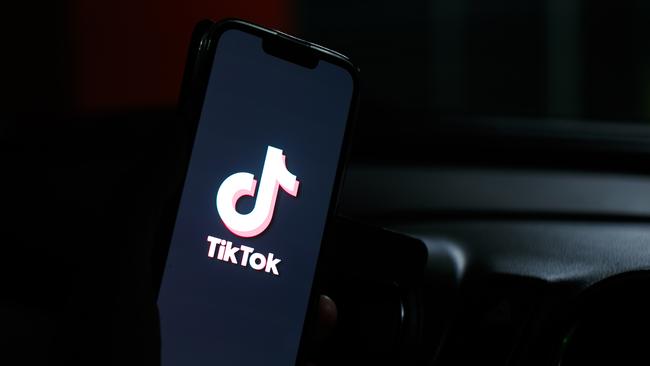
This Ideally survey suggests there is an onus on parents.
Of the 400 survey respondents, 79 per cent believe it is the responsibility of parents to enforce an age restriction. Half of people think it’s the government’s job to set the age bar.
Social media should be tightly restricted to 14 to 16 years, 47 per cent of respondents say. A quarter of people think users should have to wait until they’re 17 or 18.
The majority of respondents (68 per cent) think TikTok poses the biggest risk to kids, followed by Facebook (52 per cent) and Instagram (47 per cent).
But people aged 18 to 34 think TikTok and Instagram are almost equal threats, at 61 and 64 per cent respectively.
Thirty per cent think bullying is the biggest risk on social media for children, 17 per cent point to negative self-image, and 13 per cent think mental health issues are the biggest concern.
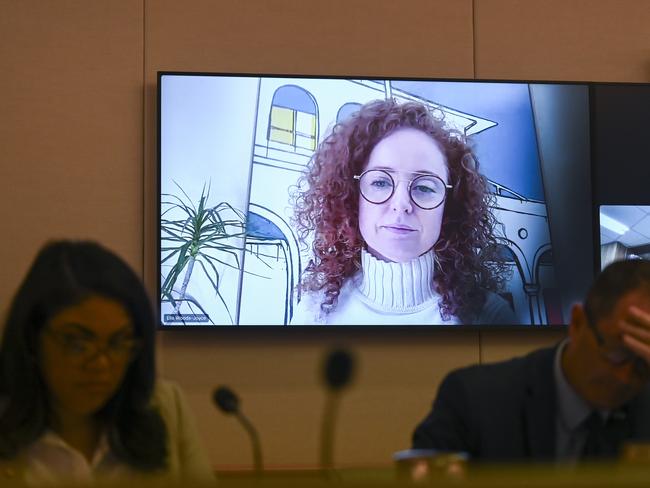
A federal parliamentary committee is putting the social media giants under the microscope. The joint select committee on social media and Australian society is investigating age verification for social media use, the algorithms and their impact on mental health, and issues related to scams, explicit content, extremism and sexual abuse.
The committee will also report on an ongoing stoush between Facebook and Instagram owner Meta and the Australian commercial media companies over Meta threatening to stop paying media companies to use content on its “news’ tab” in what is a $70m-a-year threat to the industry.
But facing questions about social media’s impact on children, relating to child sexual abuse, extreme and explicit content, and general body image issues, Meta vice-president and global head of safety, Antigone Davis, dismissed concerns.
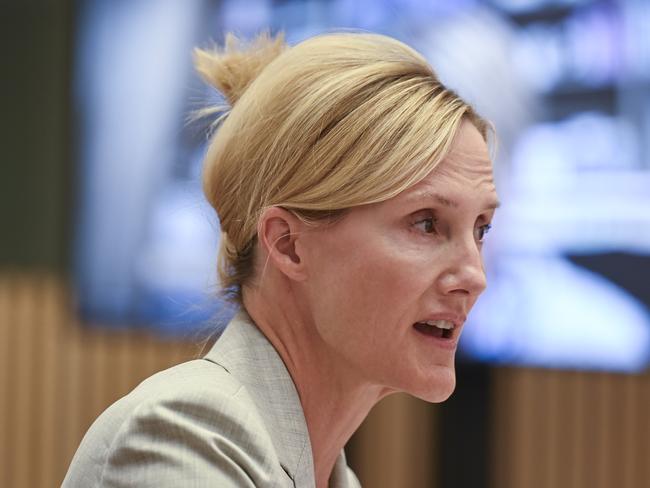
“I don’t think that social media has done harm to our children,” she told MPs.
“Social media provides tremendous benefits.
“Issues of teen mental health are complex and multifactorial.
“It is our responsibility as a company to ensure that teens can take advantage of those benefits of social media in a safe and positive environment.”.
Elsewhere Ms Davis has pushed US politicians to pass legislation requiring parental approval for app-store downloads by teenagers.
Society had been “dealing with” eating disorders for decades, and women felt pressured about their appearance from the wider society, Ms Davis said earlier in the year.
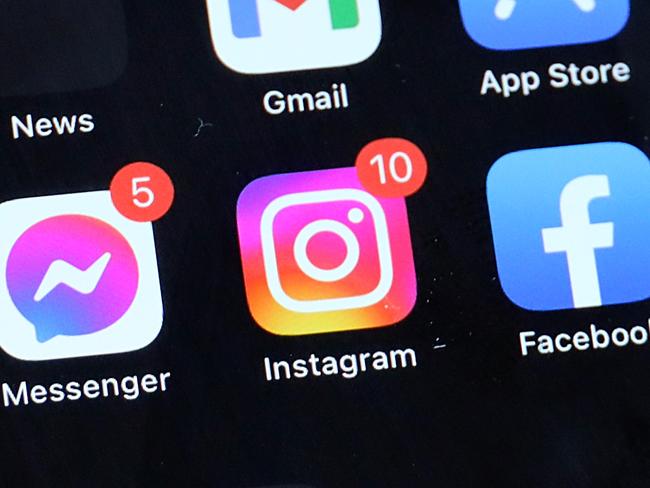
Fronting the committee for its final hearing again this week, the Meta executive denied her company was trying to pass the onus onto app stores by pushing for age verifications to be in place when an app was actually downloaded.
“So you will support some level of age assurance or age verification, as long as you don’t have to do it yourselves. Is that what it comes down to?” independent MP Zoe Daniel asked.
Ms Davis disagreed, arguing it was “very hard” for parents to stay across every app used by their children, and the app stores were better gatekeepers for age verification.
The Facebook and Instagram owner wants the app stores to police parental approval for anyone under 16 to download their apps.
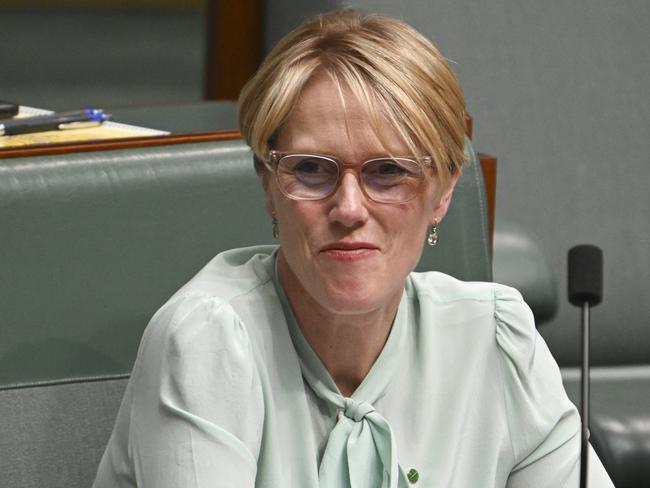
The parliamentary committee is due to present its final report in mid-November.
At a July hearing, anti-sexploitation charity director Melinda Tankard Reist blasted the social media companies, rattling off lists of graphic and illegal content and behaviour that children and teenagers are exposed to.
“Their products are not safe for children. Not safe for minors,” the Collective Shout campaigner said.
“(Age verification) doesn’t have to be bulletproof to be worthwhile. Children can still get alcohol and cigarettes, but we don’t sell it to them over the counter.”
Consensual-non-consent or “rape play” was a popular tag on TikTok, she said, and TikTok promoted whipping, sadism and choking, including choking challenges, that killed people.
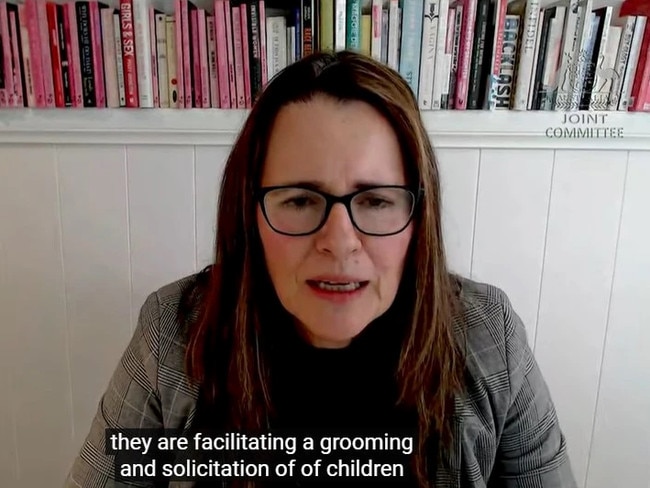
“The safety of our community is a top priority at TikTok and we refute the claims made by Collective Shout as we do not allow violent, sexually explicit, racist or self-harm content and take action to promptly remove it, wherever we identify it,” a TikTok spokesperson told NewsWire.
“When people search for particular phrases, like those outlined, they are provided with sexual abuse support resources and information for counselling service 1800 RESPECT.”
Originally published as ‘More harm than good’: Survey shows Australians want social media age restrictions tightened





